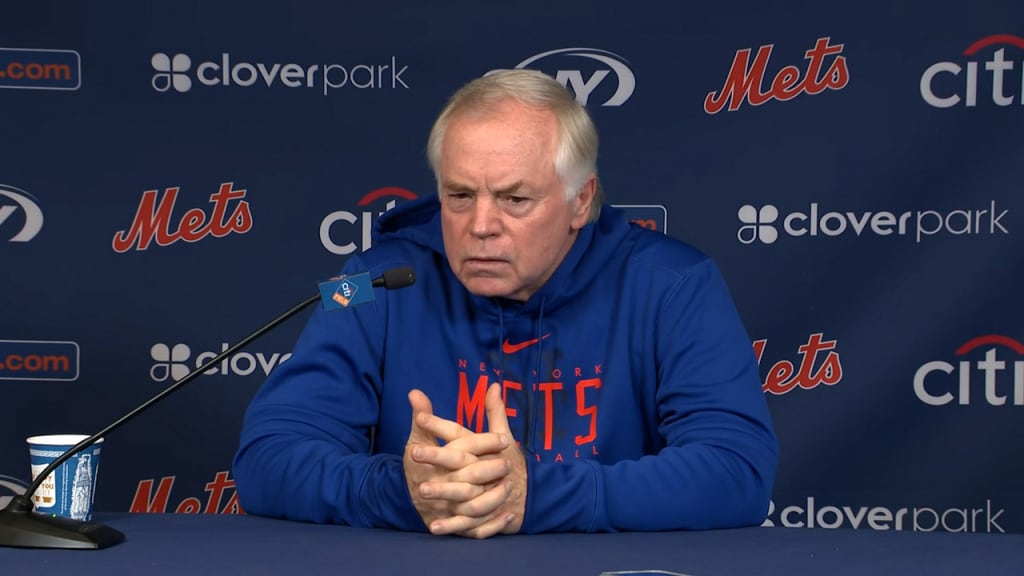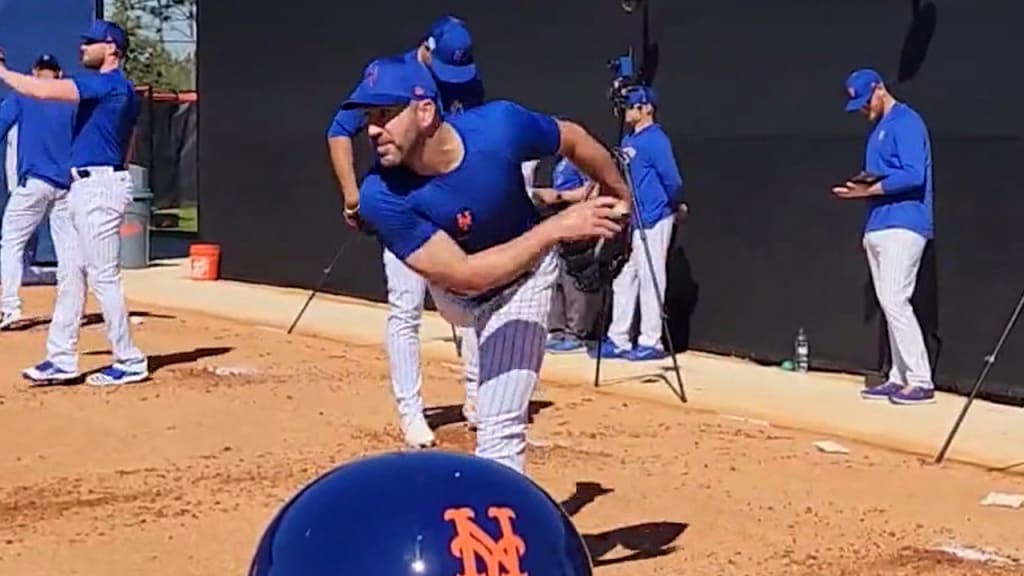'You can’t fast forward': Mets' spring reset means no shortcuts
This browser does not support the video element.
PORT ST. LUCIE, Fla. -- Two years ago, at the same Clover Park complex where they are gathering this month, the Mets grabbed headlines with a Spring Training drill in which they simulated winning the World Series. Players poured around the pitcher’s mound from all corners of the diamond, celebrating as if they had just completed their end goal. They noted afterward that to achieve greatness, they must practice it.
The years between have scarred the Mets a bit, taught them a few lessons about winning and losing. At the end of last season, New York’s 101-win season evaporated in less than a fortnight, when the Braves swiped away the NL East title and the Mets subsequently lost a best-of-three Wild Card Series to the Padres. That stung. It stung throughout the offseason. It will continue to sting until the next chance arises.
But the Mets also know they can’t take another crack at the playoffs without paying the buy-in. Spring Training is a reset button, to be sure, and a needed one. But it resets things all the way back to the beginning.
“You can’t fast forward to September, October,” manager Buck Showalter said Tuesday, on the eve of the first official Mets spring workout. “You can’t do that. There’s too many bridges to cross.”
The first of those the Mets crossed over the offseason, when owner Steve Cohen invested nearly half a billion dollars on what became the largest payroll in baseball, including more than $425 million in guaranteed money for Brandon Nimmo, Edwin Díaz, Justin Verlander and Kodai Senga. On paper, the resulting roster looks solid, as the Mets maintained the guts of a team that won 101 games during the regular season.
This browser does not support the video element.
But challenges await. To have a chance to reconcile their October shortcomings, the Mets first must reach October. They must keep their rotation healthy -- no small feat for a group anchored by Verlander and Max Scherzer (combined age: 77 and counting). They must find a way to remain a potent offensive team despite declining to add significant power to their lineup. They must maintain the type of good fortune that saw them go 21-15 in one-run games and outperform their Pythagorean win-loss expectation (a measure of how many games a team is expected to win based upon its run production and run prevention totals).
In short, the Mets must do everything in precisely the same way they did it last year, except for the ending.
“It’s motivating,” said Díaz, a closer whose career year made almost no difference in the Wild Card Series. “So we are excited to start the season. We’ve got a great team.”
In this situation, all the usual baseball clichés apply. Showalter spoke about the one-day-at-a-time mentality and about his club’s early-season challenges, which this year include eight games over eight days in three cities to start the season.
That’s all important, but make no mistake: The Mets know what the end goal is here. Earlier this week, Nimmo told reporters that he’s not playing in the World Baseball Classic because of both the injury risk and the expectation that the Mets hope to add “a month to a month and a half of season after this.”
This browser does not support the video element.
April through October are going to be a grind, and Nimmo’s club knows it needs to save a little something -- more than a little something, actually -- for the end.
“At some point, we’ve got to be done [with talking about last year],” Showalter said. “It’s heartless. It’s cutting. It’s ruthless. As I told them after the season was over, ‘It’s not always fair. Life’s not always fair. Baseball’s certainly not always fair.’ But who’s to say what happened wasn’t fair? Last year, I think people realized how fleeting it can be.”

